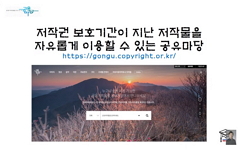This research is to understand the nature and meaning of the consumers` experiences of collaborative through the platform of the sharing economy service. Through a methodology of phenomenological qualitative research, individual in-depth interviews we...
http://chineseinput.net/에서 pinyin(병음)방식으로 중국어를 변환할 수 있습니다.
변환된 중국어를 복사하여 사용하시면 됩니다.
- 中文 을 입력하시려면 zhongwen을 입력하시고 space를누르시면됩니다.
- 北京 을 입력하시려면 beijing을 입력하시고 space를 누르시면 됩니다.

공유경제 서비스에 기반한 소비자의 협력소비 경험 = Consumers` Experiences of Collaborative Consumption Based on Sharing Economy` Service
한글로보기https://www.riss.kr/link?id=A102117495
- 저자
- 발행기관
- 학술지명
- 권호사항
-
발행연도
2016
-
작성언어
-
-
주제어
공유 ; 공유경제 ; 공유경제서비스 ; 공유플랫폼 ; 온라인기반공유 ; 협력소비 ; 소비경험 ; 현상학 ; 질적연구 ; sharing ; sharing economy ; sharing platform ; online-based sharing ; collaborative consumption ; consumption experience ; phenomenology ; qualitative research
-
KDC
300
-
등재정보
KCI등재
-
자료형태
학술저널
-
수록면
175-204(30쪽)
-
KCI 피인용횟수
13
- 제공처
-
0
상세조회 -
0
다운로드
부가정보
다국어 초록 (Multilingual Abstract)
This research is to understand the nature and meaning of the consumers` experiences of collaborative through the platform of the sharing economy service. Through a methodology of phenomenological qualitative research, individual in-depth interviews were made with eleven consumers who utilize online sharing service of kids clothing and reside in Seoul and Gyeonggi-do. From analyzing the interviews, nine categories and twenty themes were extracted. The categories of experiences of collaborative consumption can be summarized as ‘service l am looking for’, ‘utility of rational consumption’, ‘looking and waiting for treasures’, ‘high trust toward the company’, ‘in between understanding and complaint’, ‘efficient use of resources’, ‘affection by interacting on online platform’, ‘wise parent as well as savvy consumer’, and ‘from ownership to access’. The nature of these experiences of collaborative consumption can be defined as “satisfaction that meets both rationality of economic purchase and ethics of resource recycling, combined with social relationship and personal enjoyment”. Participants demonstrated the needs for collaborative consumption of kids clothing in their everyday lives. First and foremost, they were satisfied with the financial benefits and expected good items to come out. Also, they made their transactions with the high trust toward the sharing company, this showed the trend that participants expressed their agreements with the company``s value. While using the service, they expressed some complaints, desires, and disappointments toward the company, but they were willing to ultimately be able to understand the company`s position. In addition to purchasing the clothing, they sold the clothing which didn``t fit their kids any longer. So they exhibited collaborative consumption as desirable from the environmental perspective. They built a social relationship by interacting with other people via the online community, and also demonstrated a positive awareness of their self-identity as collaborative consumer. Participants experienced various collaborative consumption, prioritized value-based consumption, found meaning in experiential consumption, and valued access rather than ownership. Collaborative consumption of kids clothing created an opportunity to raise awareness of sharing economy. Therefore, online-based collaborative consumption provided some alternative and implicit meaning to a consumer culture of over-possession as an evolving consumption pattern. Finally, through the findings in this study, the implications in the aspects of corporation, government, and consumer were established.
참고문헌 (Reference)
1 여정성, "협력적 소비에 대한 소비자 참여와 확대 방안" 한국소비자정책교육학회 12 (12): 95-118, 2016
2 김기연, "협력적 소비, 공유경제 서비스 모델에 관한 소비자 선호 유형 연구 : 마케팅 커뮤니케이션 관점에서" 한국주관성연구학회 (27) : 23-40, 2013
3 신경림, "현상학적 연구의 이론과 실제" 12 (12): 49-68, 2003
4 김분한, "현상학적 연구방법의 비교고찰: Giorgi, Colaizzi, Van Kaam방법을 중심으로" 29 (29): 1208-1220, 1999
5 이남인, "현상학과 질적연구-응용현상학의 한 지평" 한길사 2014
6 Lifkin, J., "한계비용제로사회: 사물인터넷과 공유경제의 부상" 민음사 2014
7 Creswell, J .W., "질적연구방법론-다섯가지 전통" 학지사 2005
8 신경림, "질적연구방법론" 이화여자대학교출판부 2004
9 Kvale, "인터뷰-내면을 보는 눈" 하나의 의학사 1998
10 Botsman R., "위제너레이션" 모멘텀 2011
1 여정성, "협력적 소비에 대한 소비자 참여와 확대 방안" 한국소비자정책교육학회 12 (12): 95-118, 2016
2 김기연, "협력적 소비, 공유경제 서비스 모델에 관한 소비자 선호 유형 연구 : 마케팅 커뮤니케이션 관점에서" 한국주관성연구학회 (27) : 23-40, 2013
3 신경림, "현상학적 연구의 이론과 실제" 12 (12): 49-68, 2003
4 김분한, "현상학적 연구방법의 비교고찰: Giorgi, Colaizzi, Van Kaam방법을 중심으로" 29 (29): 1208-1220, 1999
5 이남인, "현상학과 질적연구-응용현상학의 한 지평" 한길사 2014
6 Lifkin, J., "한계비용제로사회: 사물인터넷과 공유경제의 부상" 민음사 2014
7 Creswell, J .W., "질적연구방법론-다섯가지 전통" 학지사 2005
8 신경림, "질적연구방법론" 이화여자대학교출판부 2004
9 Kvale, "인터뷰-내면을 보는 눈" 하나의 의학사 1998
10 Botsman R., "위제너레이션" 모멘텀 2011
11 Lifkin, J., "소유의 종말" 민음사 2001
12 김상훈, "빅스몰-인터넷과 공유경제가 만들어낸 백만 개의 작은 성공" 자음과 모음 2012
13 박봉원, "무소유, 공유경제 그리고 강원도" 강원발전연구원 2013
14 Gansky, L., "메시-빌려주는 사업의 시대가 온다" 21세기북스 2011
15 황기연, "교통부문에서 공유경제의 실험 - 카셰어링을 중심으로 -" 한국교통연구원 21 (21): 35-49, 2014
16 라준영, "공유경제와 사회적 기업: 우주(WOOZOO) 사례" 한국서비스경영학회 15 (15): 107-124, 2014
17 한국정보화진흥원, "공유경제시대, 고용률 70% 달성을 위한 새로운 일자리 창출 모델" 2013
18 양지윤, "공유경제 활성화를 통한 청년 일자리 창출방안: 청년 창업을 중심으로" 한국고용 정보원 50-65, 2014
19 김현철, "공유경제 제주도입의 정책적 시사점" 제주발전연구원 2014
20 Belk, R., "You Are What You Can Access: Sharing and Collaborative Consumption Online" 67 (67): 1595-1600, 2014
21 Belk, R., "Why Not Share Rather Than Own?" 611 (611): 126-140, 2007
22 Lamberton, C., "When is Ours Better than Mine? A Framework for Understanding and Altering Participation in Commercial Sharing Systems" 76 (76): 109-125, 2012
23 Akbar, P., "When Do Materialistic Consumers Join Commercial Sharing Systems" 69 : 2016
24 Bucher, E., "What's Mine is Yours(for a mominal fee) -Exploring the Spectrum of Utilitarian to Altruistic Motives for Internet-Mediated Sharing" 62 : 316-326, 2016
25 Barnes, S. J., "Understanding Current and Future Issues in Collaborative Consumption: A Four-Stage Delphi Study" 104 : 200-211, 2016
26 Walsh, B., "Today's Smart Choice: Don't Own. Share"
27 Bardhi, F., "Thrill of Hunt: Thrift Shopping for Pleasure" 30 (30): 375-376, 2003
28 Bardhi, F., "Thrift Shopping: Combining Utilitarian Thrift and Hedonic Treat Benefits" 4 (4): 223-233, 2005
29 Juho Hamari, "The sharing economy: Why people participate in collaborative consumption" Wiley-Blackwell 67 (67): 2047-2059, 2016
30 Eliasson, J., "The Unexpected ‘‘Yes’’: Explanatory Factors behind the Positive Attitudes to Congestion Charges in Stockholm" 18 (18): 636-647, 2011
31 PwC, "The Sharing Economy-Comsumer Intelligence Series"
32 The Economist, "The Sharing Economy-All Eyes on the Sharing Economy"
33 Sacks, D., "The Sharing Economy"
34 Piscicelli, L., "The Role of Values in Collaborative Consumption: Insights from a Product-Service System for Lending and Borrowing in the UK" 97 (97): 21-29, 2015
35 Howell, R. T., "The Preference for Experiences over Possessions: Measurement and Construct Validation of the Experiential Buying Tendency Scale" 7 (7): 57-71, 2012
36 Jenkins, R., "The Messy Social Lives of Objects: Inter-Personal Borrowing and the Ambiguity of Possession and Ownership" 13 (13): 131-139, 2014
37 Williams, C. C., "The Meaning of Alternative Consumption Practices" 20 (20): 311-319, 2003
38 Owyang, J., "The Collaborative Economy: Products, Services and Market Relationships have Changed as Sharing Startups Impact Business Models. To Avoid Disruption, Companies must Adopt the Collaborative Economy Value Change" Altimeter 2013
39 Moeller, S., "The Burdens of Ownership: Reasons for Preferring Renting" 20 (20): 176-191, 2010
40 Mano, H., "Smart Shopping: The Origin and Consequences of Price Savings" 24 (24): 504-510, 1997
41 Buczynski, B., "Sharing is Good-How to Save Money, Time and Resources through Collaborative Consumption" New Society Publishers 2013
42 Ozanne, L. K., "Sharing as a Form of a Consumption? An Examination of Toy Library Users" 9 (9): 485-498, 2010
43 Belk, R., "Sharing Versus Pseudo-Sharing in Web 2.0" 18 (18): 7-23, 2014
44 Belk, R., "Sharing" 36 (36): 715-734, 2010
45 Wittel, A., "Qualities of Sharing and Their Transformation in the Digital Age" 15 (15): 3-8, 2011
46 Urban, G. L., "Lead User Analysis for the Development of New Industrial Products" 34 (34): 569-582, 1988
47 Tussyadiah, I., "Information & Communication Technologies in Tourism 2015" Springer International Publishing 2015
48 한국방송통신전파진흥원, "IT와 신소비문화의 만남, ‘공유경제(sharing Economy)’" 33-45, 2013
49 권애라, "IT비즈니스 발전에 따른 공유경제 성장전망 및 시사점" KDB산업은행 73-87, 2013
50 John Harvey, "Giving and sharing in the computer-mediated economy" Wiley-Blackwell 15 : 2014
51 Huang, C-Y., "File Sharing as a Form of Music Consumption" 9 (9): 37-55, 2005
52 Arsel, Z., "Exploring the Social Dynamics of Online Bartering" 37 : 65-68, 2010
53 Hellwig, K., "Exploring Different Types of Sharing: A Proposed Segmentation of the Market for “Sharing” Businesses" 32 (32): 891-906, 2015
54 Edbring, E. G., "Exploring Consumer Attitudes to Alternative Models of Consumption: Motivations and Barriers" 123 : 5-15, 2016
55 Lehrer, E., "Embracing the Peer-Production Economy" 21 (21): 51-63, 2014
56 Santoso A. S., "Customer Loyalty in Collaborative Consumption Model: Empirical Study of CRM for Product-Service System-Based e-Commerce in Indonesia" 72 : 543-551, 2015
57 Firat, A. F., "Consumption Patterns and Macromarketing a Radical Perspective" 11 (11): 291-298, 1977
58 Benkler, Y., "Common-Based Peer Production and Virtue" 14 (14): 394-419, 2006
59 Leismann, K., "Collaborative Consumption: towards a Resource-Saving Consumption Culture" 2 (2): 184-203, 2013
60 Möhlmann, N., "Collaborative Consumption: Determinants of Satisfaction and the Likelihood of Using a Sharing Economy Option Again" 14 (14): 193-207, 2015
61 Lamberton, C., "Collaborative Consumption: A Goal-Based Framework" 10 : 55-59, 2016
62 Nov, O., "Analysis of Participation in an Online Photo-Sharing Community: A Multidimensional Perspective" 61 (61): 555-566, 2010
63 Albinson, P. A., "Alternative Marketplace in the 21st Century: Building Community Through Sharing Events" 11 (11): 303-315, 2012
64 Geron, T., "Airbnb and the Unstoppable Rise of the Share Economy"
65 Bardhi, F., "Access-Based Consumption: The Case of Car Sharing" 39 (39): 881-898, 2012
66 Park, H., "A role-driven Component-Oriented Methodology for Developing Collaborative Commerce Systems" 46 (46): 819-837, 2004
동일학술지(권/호) 다른 논문
-
심적 시뮬레이션 유형과 조절모드와의 조절 적합성이 심적 시뮬레이션 활성화와 심적 시뮬레이션의 활성화를 유발하는 광고의 효과에 미치는 영향
- 한국소비자학회
- 권익현 ( Kwon Ickhyun )
- 2016
- KCI등재
-
소비자들이 자신 대(對) 타인을 위한 선택 시에 행하는 목표관리: 목표진행이 선택에 미치는 효과에 대한 선택맥락과 진행 프레이밍의 조절적 역할
- 한국소비자학회
- 박세훈 ( Park Sehoon )
- 2016
- KCI등재
-
브랜드 애착이 브랜드 성과를 넘어 소비자 삶의 질에 미치는 영향
- 한국소비자학회
- 김정구 ( Kim Chung K. )
- 2016
- KCI등재
-
모바일 프로모션 사용 시 소비자 가격지향성, 패션제품 대안평가규칙 및 쇼핑 효용가치 사이의 구조모델
- 한국소비자학회
- 김은영 ( Kim Eun Young )
- 2016
- KCI등재
분석정보
인용정보 인용지수 설명보기
학술지 이력
| 연월일 | 이력구분 | 이력상세 | 등재구분 |
|---|---|---|---|
| 2026 | 평가예정 | 재인증평가 신청대상 (재인증) | |
| 2020-01-01 | 평가 | 등재학술지 유지 (재인증) |  |
| 2017-01-01 | 평가 | 등재학술지 유지 (계속평가) |  |
| 2013-01-01 | 평가 | 등재학술지 유지 (등재유지) |  |
| 2010-01-01 | 평가 | 등재학술지 유지 (등재유지) |  |
| 2008-01-01 | 평가 | 등재학술지 유지 (등재유지) |  |
| 2006-01-01 | 평가 | 등재학술지 유지 (등재유지) |  |
| 2004-01-01 | 평가 | 등재학술지 유지 (등재유지) |  |
| 2001-07-01 | 평가 | 등재학술지 선정 (등재후보2차) |  |
| 1999-01-01 | 평가 | 등재후보학술지 선정 (신규평가) |  |
학술지 인용정보
| 기준연도 | WOS-KCI 통합IF(2년) | KCIF(2년) | KCIF(3년) |
|---|---|---|---|
| 2016 | 1.48 | 1.48 | 1.67 |
| KCIF(4년) | KCIF(5년) | 중심성지수(3년) | 즉시성지수 |
| 1.7 | 1.88 | 2.351 | 0.15 |




 KCI
KCI KISS
KISS






